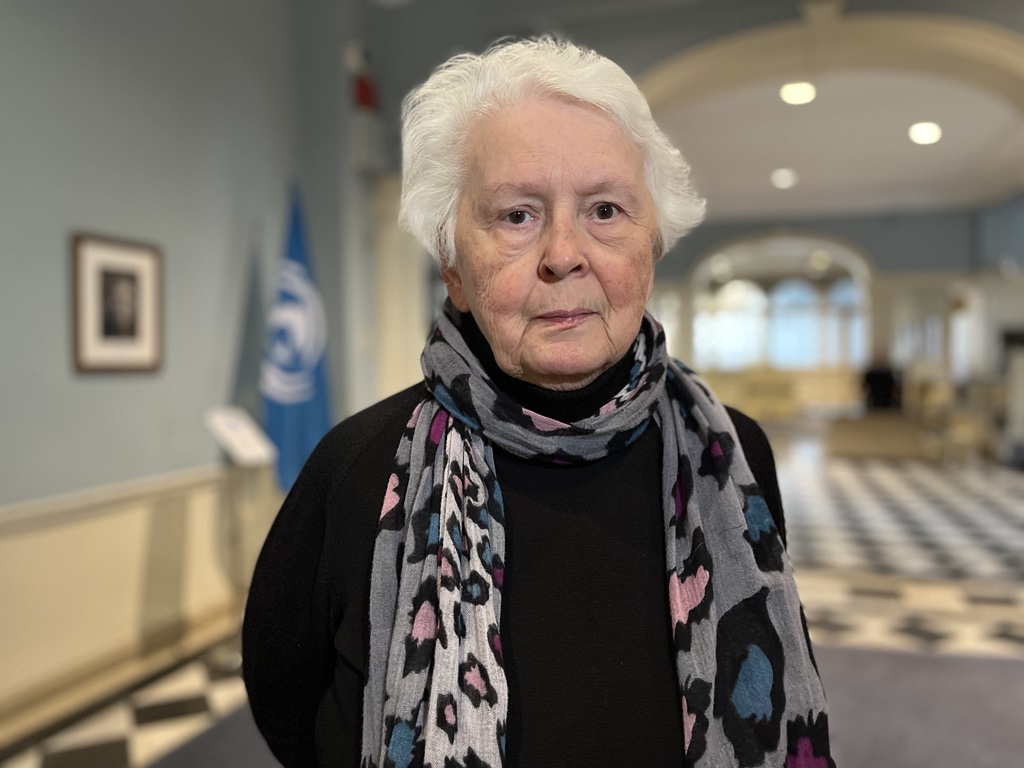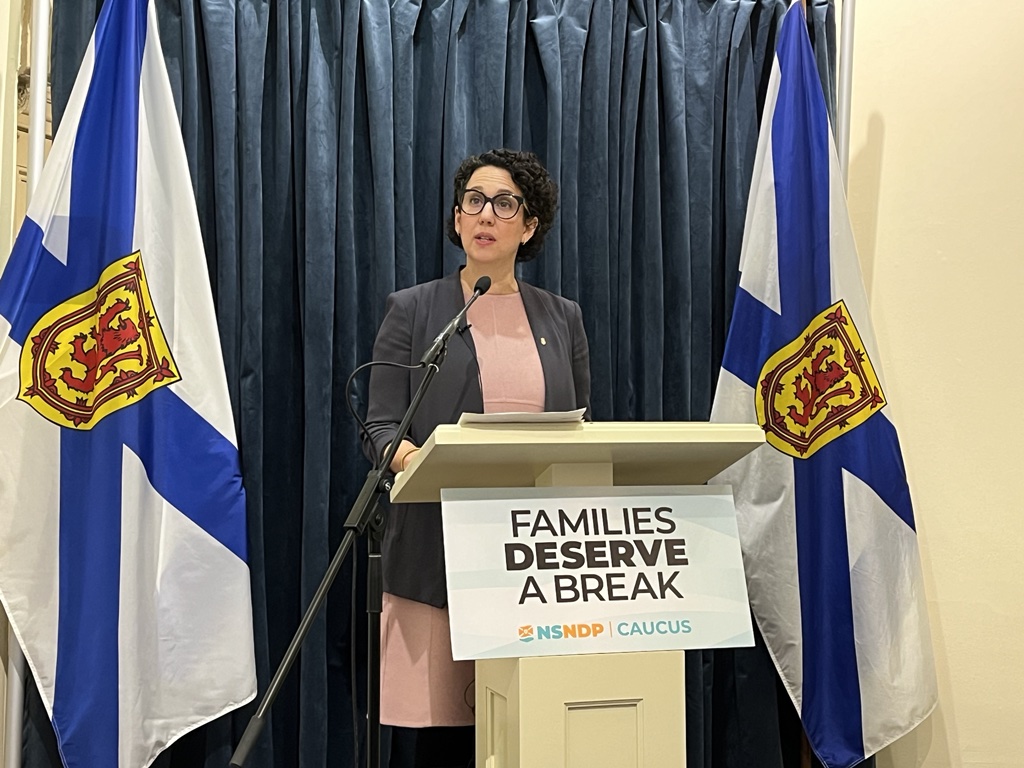A Nova Scotia senior is planning to return to work at the age of 77 amid the strains of high living costs.

“I don’t know what’s going to happen in the future, but it doesn’t look pretty,” Janet Brush says.
She lives on a fixed income and estimates she spends nearly half her money on rent alone.
Brush says she was forced out of her home last year due to a fixed-term lease and is now spending about $250 more a month on her new place.
“I’ll tell you, if you’re faced with potential homelessness at 76, it’s horrible. I was terrified,” she says.
Now, at age 77, she’s looking for part-time work.
“I can’t go stocking shelves at Sobeys or flinging hamburgers — I can’t do that anymore,” Brush says. “I’ll have to rely on my intellectual skills, I guess.”
Brush attended a press conference held by the Nova Scotia NDP on Wednesday.

Get breaking National news
Ahead of the spring sitting of the legislature, provincial NDP Leader Claudia Chender says Nova Scotians deserve a financial break.
The party is advocating for a low-income power rate to be introduced and a $400 top-up to the heating assistance rebate to match last year’s $1,000 amount.
“The rounding error that would ensue from creating a low-income energy rate for the basket of individuals who would need that we believe would not have a significant impact when it’s smoothed through the rest rate base,” Chender says.
In a statement provided by spokesperson Rachel Boomer, the province says last year’s $1,000 heating assistance rebate was identified as a one-time increase.
“We knew Nova Scotians were still struggling when HARP launched this year, and that’s why the rebate went to $600 rather than the $200 level it has been for most of its existence since it was created in 2008,” the statement says. “At this time, there are no plans to change the amount of the rebate mid-season.”
Chender is also calling for the removal of licence renewal fees and an extension from two to five years for vehicle inspections.
- Canadian woman charged with illegally crossing into U.S., kicking border agent’s face
- A new ‘cold’ war? Canada looks to bolster Arctic security, sovereignty
- Canadian furniture industry still ‘reeling’ after Trump pauses tariff spike
- Ottawa propose fines of up to $1M for violating foreign influence registry rules
“We have higher fees and a more restrictive regime when it comes to these licensing and renewal fees than most other provinces,” Chender says.
The province says it’s continuing to look at ways to support Nova Scotians amid rising costs, “and that includes fees for government services such as license renewals and vehicle inspections.”
The NDP’s final call is for a universal school lunch program. The province is working with the federal government to bring their National School Food Policy to Nova Scotia.
Brush says tough times will remain without additional supports.
“I think of the (Great) Depression,” she says. “That’s really scary, that comparison. It should not be this way.”
Seniors struggling with cost of living
Many seniors, who tend to be on fixed incomes, are struggling with the rising cost of living, and a recent report indicates that retirement is “becoming unaffordable” for older Canadians.
Nearly half of applicants on Nova Scotia’s public housing waitlist are seniors, and two-thirds of residents currently in public housing are seniors.
In October, Housing Minister John Lohr said the province is “very concerned” about seniors unable to live on fixed incomes.
“That’s one thing that we see when we’re in an inflationary time. It’s very hard on people on a fixed income,” he said.
In addition to being “committed to having seniors in public housing,” Lohr said he wanted to help seniors stay in their own homes.
Nova Scotia Finance Minister Allan MacMaster said in November that he’s open to examining whether a seniors income benefit can be implemented in his province.
However, he said he’s not interested in adopting an NDP bill that calls for changes to the provincial Income Tax Act to provide an income supplement for seniors.
The legislature resumes on Feb. 27.












Comments